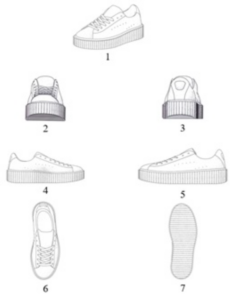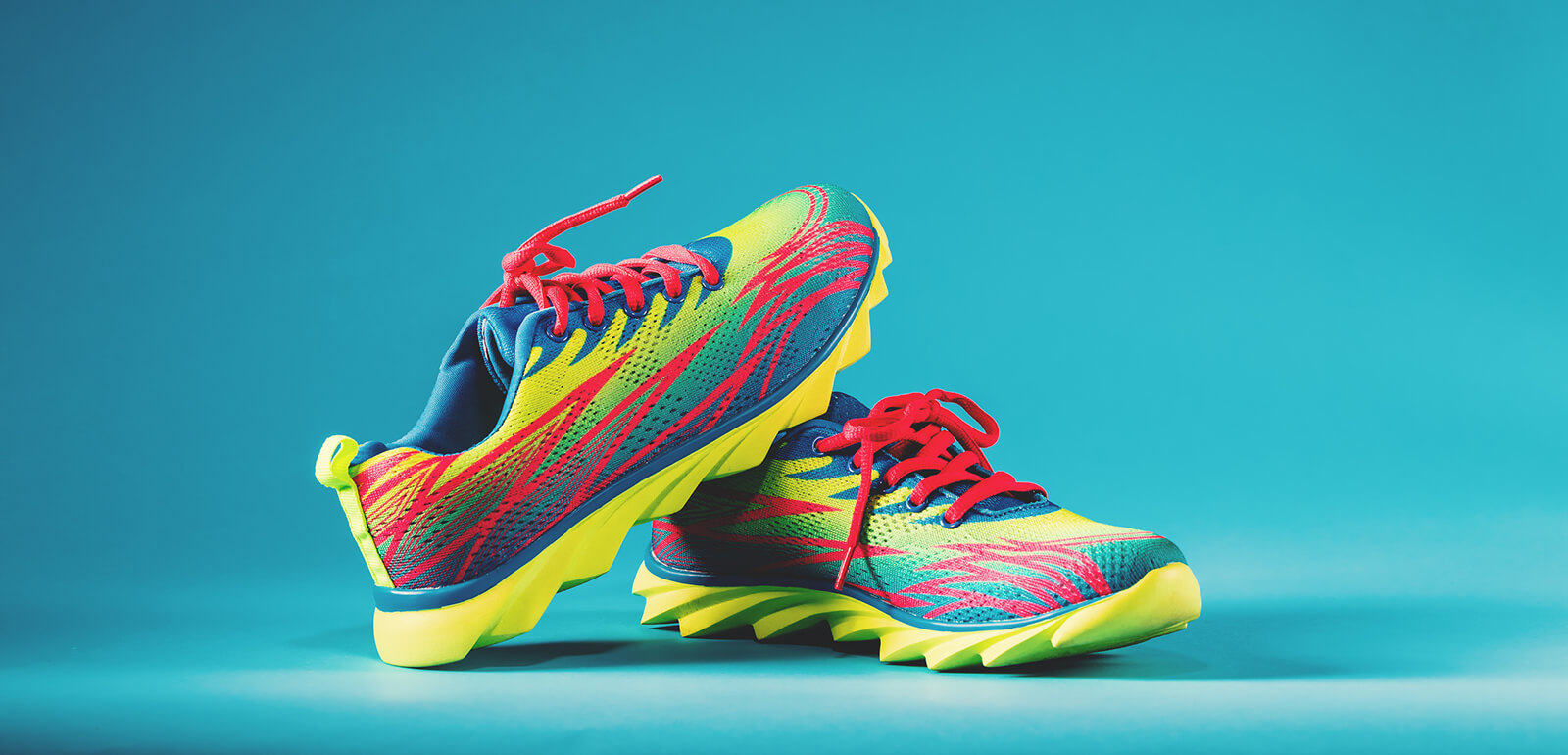Registered Designs & Novelty: Prior Instagram post may lead to cancellation
Registered Community Designs (RCD) are an extremely effective tool to defend design against copycats. However, applicants of such designs must strictly observe the novelty grace period as part of the registration process and submit the application within the 12-months period. The sporting goods manufacturer Puma recently lost a registration for a Community Designs covering shoes because an older Instagram post showed US pop star Rihanna wearing a similar model (General Court, Judgment of 6 March 2024, T-647/22).
In July 2016, sporting goods manufacturer Puma applied for a Registered Community Design for a sneaker model that contained the following 7 images and was registered by EUIPO:

As part of a legal dispute, a competitor took action against the registration. The invalidity proceedings were based on 2 main arguments: On the one hand, it was complained that the sneaker design lacked the necessary individuality that was the basis for any entry into the register. On the other hand, it was also argued that photos of Rihanna were posted on Instagram accounts as early as December 2014, showing the pop star wearing a very similar shoe model. This having said, the application date in July 2016 was after the permissible period of 12 months for a previous disclosure (grace period).
Disclosure through Instagram post of third party?
The Applicant of the invalidity proceedings was able to prevail with its arguments before the European Court of First Instance. Puma and EUIPO had argued that Rihanna’s wearing of the shoes should not be viewed as a prior disclosure in the legal sense. The grace period had therefore not yet expired at the time of design application. The photos published on Instagram were of poor quality to adequately identify the shoe model. In addition, the focus of the photos is on the pop star and not on the shoes. When the photos were published on Instagram, no one was interested in the shoes, only in Rihanna as a VIP.
The ECJ did not want to follow this line of arguments. It considered at least some of the published photos to be sufficient in terms of quality and content to assume a revelation of the sneaker design as early as 2014. In addition, with regard to the singer, it was assumed that a relevant part of her fan base was also interested in the clothes or shoes she wears. Since the photos were taken at an internal event (Rihanna’s contract signing upon appointment as the new creative director of Puma), the question also arose as to whether Puma could rely on an exception in the Design Law. According to Art. 7 (1) of the Community Designs Regulation (Regulation (EC) 6/2002), the breach of contractual obligation to keep documents/images confidential does not lead to the loss of the grace period.
No indication for breach of contract upon publication
However, the ECJ saw no evidence to assume such circumstances. No arguments/proof had been submitted by Puma that would have supported this exception. There were also various publications of pictures from different accounts on Instagram – including Rihana’s official Instagram account. Further to this, there is no evidence that the relevant public could not have known about these publications.
The decision demonstrates that it is essential to pay attention to the issue of first disclosure of designs in the registration process. Otherwise, there is a risk of later loss of the right to register.

